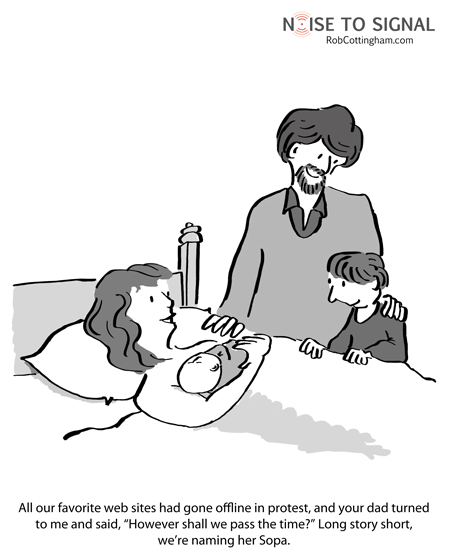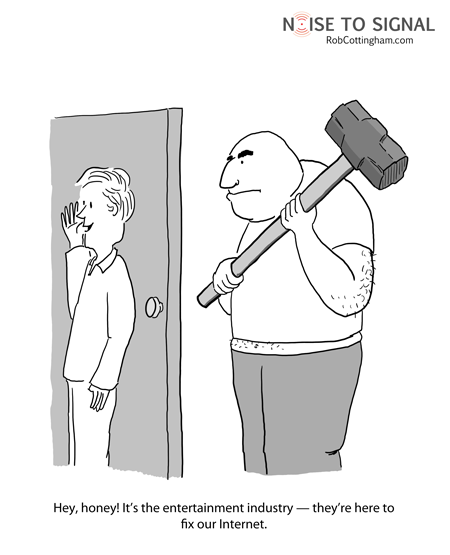Originally posted on ReadWriteWeb
SOPA and PIPA, the twin bills before the U.S. Congress, may not be dead dead. But after the past few weeks of protest, culminating in Wednesday’s remarkable day of action, they’re not looking at all well.
Votes on both bills are now delayed indefinitely. (Or, to put it in terms the MPAA would understand, they’re in development hell.) Former sponsors are now fleeing for higher ground; the bills’ supporters are fodder for The Daily Show and The Colbert Report.
This doesn’t mean that victory is ours, that our enemies scatter before us as frightened rabbits, and that the sun of the unfettered Internet will shine for a thousand generations.
Big media will try again, and again, and again, and judging from the contempt that industry representatives expressed for the bills’ opponents, their next foray won’t be much more enlightened than this one. And both Sen. Harry Reid and Rep. Lamar Smith released statements that stressed entertainment industry jobs but made no mention of the economic importance of the Internet. (Each made passing reference to “innovation.” This, in 2012, represents progress.)
“We should delight in the stand we’ve taken in favor of things like, say, notifications, and trials, and proof before censoring someone,” Clay Shirky wrote this week, “but we should get ready to do it again next year, and the year after that. The risk now is not that SOPA will pass. The risk is that we’ll think we’ve won.”
True. Sobering. And important.
But in the meantime, if you blacked out your blog, slapped a banner on your avatar, wrote a letter to the editor, or contacted a Senator or House Representative to let them know where you stand, you can take a little pleasure and pride in what you’ve accomplished. And then let’s work to turn this success into the enduring, effective movement we’ll need to make it last.
P.S. I’m in Canada, but I still took Noise to Signal offline on the 18th. The ramifications of SOPA/PIPA go well beyond American borders, I have plenty of American readers (and friends)… but most of all, I love the open Web, and I don’t like to see it threatened.


